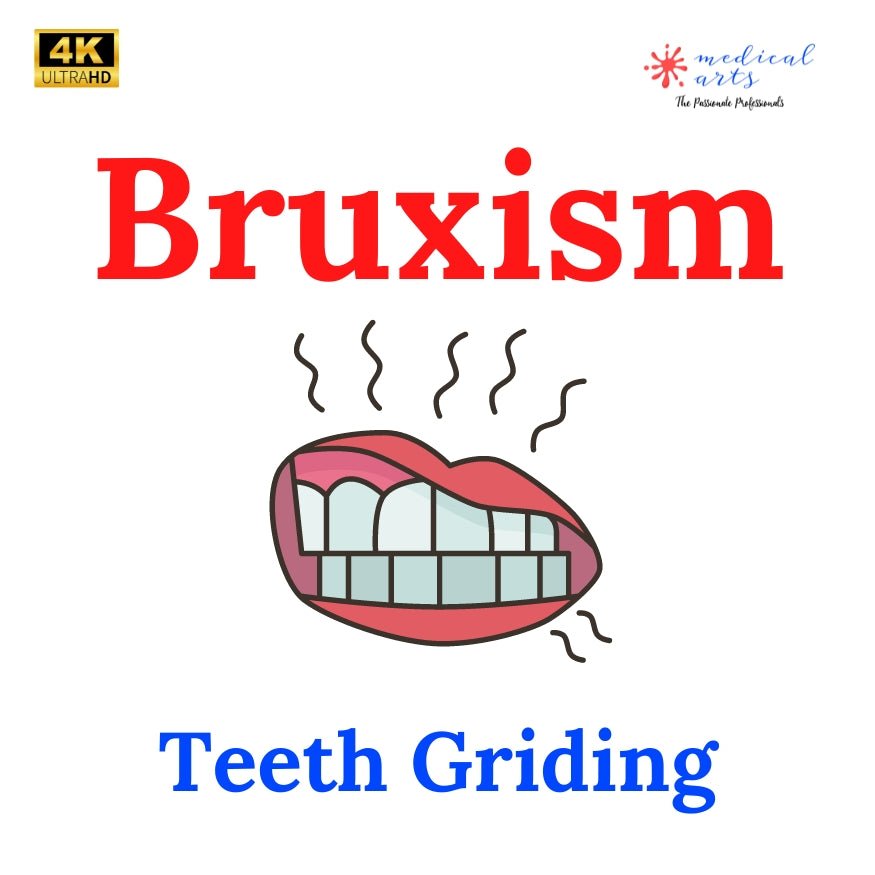Understanding Bruxism: Causes, Symptoms, and Solutions
Introduction
Have you ever woken up with a sore jaw or a dull headache? These could be signs of bruxism, a common condition in which you grind, gnash, or clench your teeth, often without even realizing it. While it might not sound serious, unchecked bruxism can lead to a range of dental and medical issues. Let's explore what causes bruxism, how to identify it, and the best ways to manage this often overlooked condition.
What is Bruxism?
Bruxism is typically divided into two types: awake bruxism and sleep bruxism. Awake bruxism involves consciously or subconsciously clenching the teeth while awake, often in response to stress or concentration. Sleep bruxism, on the other hand, occurs during sleep and is considered a sleep-related movement disorder, frequently linked with other disorders such as sleep apnea.
Symptoms of Bruxism
The signs of bruxism can vary, but commonly include:
- Grinding noises while sleeping, which can disturb a sleeping partner
- Flattened, fractured, chipped, or loose teeth
- Increased tooth pain or sensitivity
- Jaw, neck, or face pain or soreness
- Tight or tired jaw muscles, especially in the morning
- Dull headaches starting at the temples
- Damage from chewing on the inside of the cheek
- Sleep disruption
Causes and Risk Factors
The exact cause of bruxism is not always clear, but several factors may be involved:
- Stress and Anxiety: Emotional stress, anger, frustration, and anxiety are strongly linked to bruxism.
- Personality Type: A hyperactive, competitive, or aggressive personality can increase the risk.
- Age: Bruxism is common in young children but usually goes away by adulthood.
- Substance Use: Smoking tobacco, drinking caffeinated beverages or alcohol, or using recreational drugs can increase the risk of bruxism.
- Medications and Other Conditions: Certain psychiatric drugs, and disorders, such as Parkinson's disease or reflux, might trigger bruxism.
Diagnosing Bruxism
Dentists typically diagnose bruxism by looking for unusual wear spots on your teeth and assessing related symptoms. Sometimes, they recommend a sleep study to rule out associated disorders like sleep apnea.
Managing and Treating Bruxism
While there's no cure for bruxism, managing it can reduce symptoms and prevent further damage. Treatment options include:
- Mouthguards and Splints: These devices, fitted by a dentist, keep teeth separated to prevent damage from grinding.
- Stress Management: Techniques such as meditation, counselling, and exercise can reduce stress and decrease the occurrence of bruxism.
- Dental Correction: In severe cases, reshaping the chewing surfaces of teeth or using crowns can repair dental damage and maintain a better bite.
- Behavioural Strategies: Being mindful of not clenching or grinding and positioning the tip of the tongue between your teeth can help break the habit.
- Medications: Muscle relaxants can sometimes be prescribed temporarily to relieve pain or aid sleep.
Conclusion
Bruxism is more than just a nuisance; it's a prevalent health issue that can significantly impact your quality of life. If you suspect you might be grinding your teeth, visiting a dentist for an evaluation is crucial. With the right strategies, bruxism can be managed effectively, ensuring better sleep, reducing pain, and maintaining dental health. So, take a moment to consider your symptoms and seek help if needed—it could significantly improve your overall well-being.

